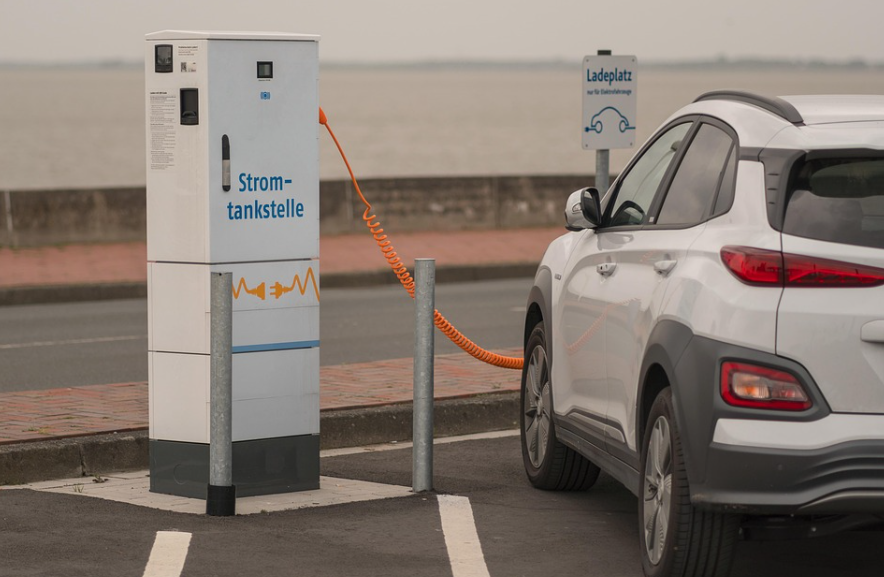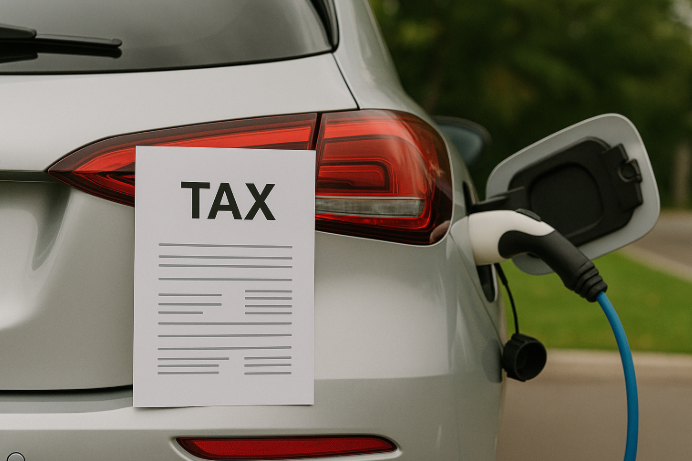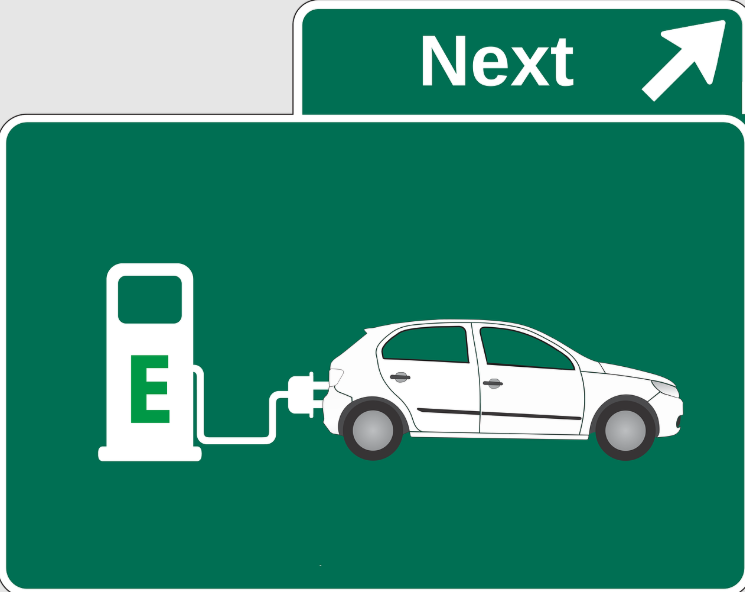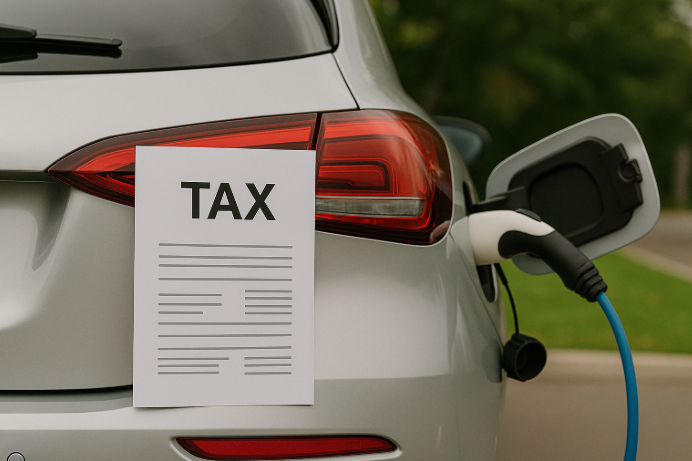How much will electric car tax be in 2025 in the UK? If you’re a UK consumer planning to buy an electric vehicle (EV) in 2025, understanding the tax landscape is essential. Electric cars offer various tax incentives and exemptions that make them more cost-effective than petrol or diesel vehicles. In this article, we will cover:
- Vehicle Excise Duty (VED) for EVs
- Additional EV-related taxes and exemptions
- Comparisons with petrol and diesel vehicles
- Real-world savings examples
Let’s explore how much electric car tax will be in 2025 in the UK and how it affects your total cost of ownership.
What is electric car tax (VED) in 2025 in the UK?
The majority of cars registered in the UK are required to pay the yearly Vehicle Excise Duty (VED), sometimes known as road tax. However, as part of the government’s push toward net-zero carbon emissions, electric vehicles (EVs) currently enjoy generous exemptions. As an older driver in the UK, staying on top of older driver car tax changes is crucial—especially in 2025, when a new round of Vehicle Excise Duty (VED) reforms come into effect.
In 2025:
-
BEVs continue to be exempt from the normal rate of VED as well as the first-year rate.
-
Plug-in hybrids are taxed based on CO₂ emissions, though they often fall into lower bands than petrol or diesel cars.
-
Petrol and diesel cars continue to be taxed on a sliding scale, based on CO₂ emissions at the point of registration.
This makes EVs an economically attractive choice for new buyers, especially when combined with lower running costs and government incentives.
How much will electric car tax be in 2025 calculator
Standard VED Rate for Electric Vehicles:
-
£0 per year for EVs under £40,000
-
£355/year surcharge for EVs over £40,000 (for 5 years from the second year of registration)
Although standard VED remains at zero, EVs with a list price over £40,000 must still pay the Expensive Car Supplement, which applies from year two through year six after registration.
Tax Savings Calculator Tip:
To estimate total tax savings:
-
Use a car tax comparison calculator that lets you input your car model, fuel type, and list price.
-
Compare EV tax rates against equivalent petrol/diesel vehicles to see your yearly savings.
How much VED will I pay for EVs under £40,000 in 2025?

If the list price of your EV is less than £40,000, you pay:
-
£0 in VED
-
£0 in Expensive Car Supplement
-
No fuel duty
This represents a clear tax advantage over internal combustion engine (ICE) vehicles, which typically pay £130–£600 or more annually depending on emissions.
Which models under £40k pay zero VED? –
As of 2025, many EV models fall below the £40,000 threshold. Some popular examples include:
| Model | Starting Price (Approx.) | VED Payable |
|---|---|---|
| Nissan Leaf | £28,000 | £0 |
| MG ZS EV | £31,000 | £0 |
| Renault Zoe | £30,000 | £0 |
| Kia Niro EV | £37,500 | £0 |
| Peugeot e-208 | £34,000 | £0 |
| Fiat 500e | £30,000 | £0 |
These cars offer zero emissions, low maintenance costs, and complete exemption from road tax—making them ideal for cost-conscious, eco-aware drivers.
What about EVs over £40k—luxury car supplement?
For five years, beginning in the second year following registration, owners of electric cars costing more than £40,000 are required to pay the £355 annual Expensive Car Supplement. While this fee doesn’t apply in the first year, it does reduce the long-term tax advantage of premium EVs.
EVs Likely to Incur the Surcharge:
| Model | Starting Price | Annual Surcharge (Years 2–6) |
|---|---|---|
| Tesla Model 3 Long Range | £46,000 | £355 |
| Audi Q4 e-tron | £50,000 | £355 |
| VW ID.7 | £47,000 | £355 |
| BMW i4 | £51,000 | £355 |
| Mercedes EQC | £65,000 | £355 |
What year does the government want all cars to be electric?
The UK government has revised its original timeline and now plans to ban the sale of new petrol and diesel cars by 2035. This includes:
-
No new internal combustion engine (ICE) vehicle sales from 2035.
-
Hybrids and plug-in hybrids will also be phased out gradually.
-
Second-hand petrol/diesel cars will still be available but will become less common.
This move is aligned with broader goals to reduce greenhouse gas emissions and meet Net Zero by 2050 commitments.
Are insurers refusing to insure electric cars?
There have been media reports suggesting that some insurers are cautious about electric cars. This is mostly due to:
-
Higher repair costs (especially battery and software-related issues)
-
Limited availability of specialist garages
-
Delays in parts or trained technicians
However:
-
Most major UK insurers do offer EV policies, including Direct Line, Aviva, LV=, Admiral, and Churchill.
-
EV-specific insurers like By Miles, InsureMyTesla, and LV= Electric Car Insurance offer tailored policies.
-
Drivers should compare EV-friendly insurance that includes cover for:
-
Battery repairs/replacement
-
Charging cables and home chargers
-
Roadside assistance for flat battery situations
-
What other EV-related taxes or charges apply in the UK in 2025?

As electric vehicles (EVs) become more mainstream, the UK government continues to offer favourable tax treatments to support adoption. In 2025, several incentives and exemptions remain in place, significantly reducing the cost of EV ownership.
Congestion Charge & ULEZ in cities
In 2025, the London Congestion Charge and Ultra Low Emission Zone (ULEZ) fees do not apply to fully electric cars. This offers a major cost advantage for city-based drivers.
-
Congestion Charge: Typically £15/day (Monday–Friday, 7am–6pm).
-
ULEZ: £12.50 per day for petrol or diesel vehicles that do not comply.
Annual savings for regular city commuters using EVs can reach:
-
£3,375 (if driving 5 days/week in Congestion Zone)
-
£3,000+ for ULEZ areas over 48 weeks/year
Other UK cities, including Birmingham, Bristol, and Oxford, have introduced or plan similar low-emission zones where EVs remain free to enter.
Benefit-in-Kind (BIK) for company EVs
Benefit-in-Kind (BIK) tax is computed for employees based on the car’s list price and the relevant BIK percentage. Company car drivers benefit significantly from low BIK rates when choosing electric vehicles:
| Vehicle Type | 2025 BIK Rate | Tax Impact (based on £40,000 car) |
|---|---|---|
| Fully Electric | 2% | ~£320/year (20% taxpayer) |
| Plug-in Hybrid | 8–14% | £1,280–£2,240/year |
| Petrol/Diesel | 18–37% | £2,880–£5,920/year |
Why it matters: Lower BIK means a reduced tax bill for employees and lower National Insurance contributions for employers.
Home EV charger installation—Zero-Rate VAT
In 2025, installing a home EV charger qualifies for reduced 5% VAT, instead of the standard 20%. This applies to:
-
Wallbox chargers installed at residential homes
-
Labour, cabling, and installation equipment
Estimated savings:
-
For a £1,200 charger installation, 5% VAT = £60 (vs £240 with 20% VAT)
-
Net savings: £180+, especially useful when bundled with government grants or green energy schemes
How do these savings compare to petrol/diesel car tax costs?
| Vehicle Type | Road Tax (VED) | Congestion/ULEZ | Annual BIK | VAT on Charger |
|---|---|---|---|---|
| EV < £40k | £0 | £0 | 2% | 5% |
| EV > £40k | £355 | £0 | 2% | 5% |
| Petrol/Diesel Car | £165-£610 | £15/day | 18-25% | N/A |
Result: EVs provide sustained annual savings, particularly in urban environments and for company drivers.
What is the benefit in kind for electric cars in 2025?
In 2025, the Benefit-in-Kind tax rate for fully electric company cars remains at 2%, one of the lowest in Europe. This ensures:
-
Predictable, low monthly tax deductions
-
More affordable access to high-spec electric company cars
-
Long-term financial benefits for companies with sizable EV fleets
The government has confirmed that BIK for EVs will increase gradually to 5% by 2028, allowing drivers and employers to plan ahead.
How much could I save by choosing an EV in 2025?
Switching from a petrol or diesel vehicle to an EV in 2025 can deliver thousands in savings each year:
| Category | Petrol Car | Electric Car |
|---|---|---|
| Annual Fuel Costs | £1,200 | £500 |
| Road Tax (VED) | ~£200 | £0 |
| City Charges (London) | £500–£3,500 | £0 |
| Maintenance | £600–£800 | £300–£400 |
| BIK Tax (company car) | ~£3,000 | ~£320 |
4-Year Example (Nissan Leaf – £32,000):
-
VED: £0
-
Congestion/ULEZ: £0
-
Fuel + servicing savings: ~£2,000
-
Total estimated benefit: ~£4,800–£6,000 over 4 years
Will any EV tax changes happen in late 2025 or beyond?

While no major changes to VED or BIK for EVs are confirmed for late 2025, the following are potential developments beyond this year:
-
VED for EVs may be introduced in April 2026 as announced in earlier budgets.
-
ULEZ zones could expand to more towns and cities.
-
Adjustments to the £40,000 luxury surcharge threshold are under review.
-
Gradual increase in BIK for EVs begins in 2026 (rising by 1% annually).
Tip: Always consult the official HMRC or GOV.UK portals for the latest policy updates.
Is there really a future for electric cars?
Yes—electric vehicles are increasingly seen as the future of personal and commercial transportation. Driving factors include:
-
Government regulation: Sales of new petrol/diesel cars will be banned by 2035.
-
Environmental goals: UK’s Net Zero target by 2050 depends heavily on EV adoption.
-
Industry investment: Major automakers are shifting focus toward full electric line-ups.
-
Public awareness: Growing support for clean energy and reduced emissions
EV infrastructure, affordability, and reliability are all improving, making this transition more realistic each year.
Will electric cars be cheaper in 2030?
By 2030, the price of EVs is expected to:
-
Match or undercut petrol/diesel vehicles
-
Drop due to reduced battery costs (expected to fall below $100/kWh)
-
Benefit from mass production efficiencies and economies of scale
Incentives and tech improvements will also reduce lifetime ownership costs, further encouraging adoption.
Will electric cars last 10 years?
Yes, most EVs are designed to last 10–15 years or more with proper use. Key points:
-
Battery warranty: Often 8 years or 100,000 miles
-
Fewer moving parts: No gears, clutch, or oil changes reduce wear and tear
-
Software updates: Extend car life through performance and efficiency improvements
EV batteries may degrade slightly over time but remain functional well beyond a decade with moderate usage.
What is the biggest advantage and disadvantage of electric cars?
| Advantage | Disadvantage |
|---|---|
| ⚡ Low running costs | ⚠️ Limited public charging in some regions |
| 🚫 Zero emissions and VED | ⏱️ Longer refueling time than petrol |
| 🚗 Smooth, quiet driving experience | 🧭 Range anxiety for longer trips |
| 💼 Low company car tax (BIK) | 🔋 Battery replacement costs (if needed) |
| 🏙️ Congestion/ULEZ exemption | 🏘️ Access to home charging may be limited |
Conclusion
How much will electric car tax be in 2025 in the UK? For EVs under £40,000, the answer is £0 in VED, plus exemptions from congestion charges and low BIK rates. Combined with fuel savings and VAT incentives, electric cars present a strong economic case for 2025 buyers. Even EVs above £40,000 offer lower total costs compared to petrol alternatives.
FAQs
How much will VED cost on a £28k EV in 2025?
£0 annually.
Are EVs always exempt from the London Congestion Charge?
Yes, if they are 100% electric.
Will BIK tax for EV company cars rise after 2025?
Possibly, depending on government reviews.
Can I still claim VAT on home charger installation?
Yes, under the 5% VAT rate.
How much is road tax on a £37k EV in 2025?
£0.
Do chargers at home save me money?
Yes, both on fuel costs and VAT.
Will ULEZ expansion affect EVs?
No, EVs remain exempt.
Is leasing an EV cheaper than buying petrol?
Often, especially with tax and running-cost advantages.
I’m Laura Wilson, a passionate blogger and content creator with a deep interest in business, finance, and entrepreneurship. I’ve had the opportunity to write for several premium blogs, sharing insights & practical advice for individuals & small businesses. I’m the founder and publisher of ukbusinessmag.co.uk, where I focus on creating valuable, easy-to-understand content to help UK startups & SMEs grow.



